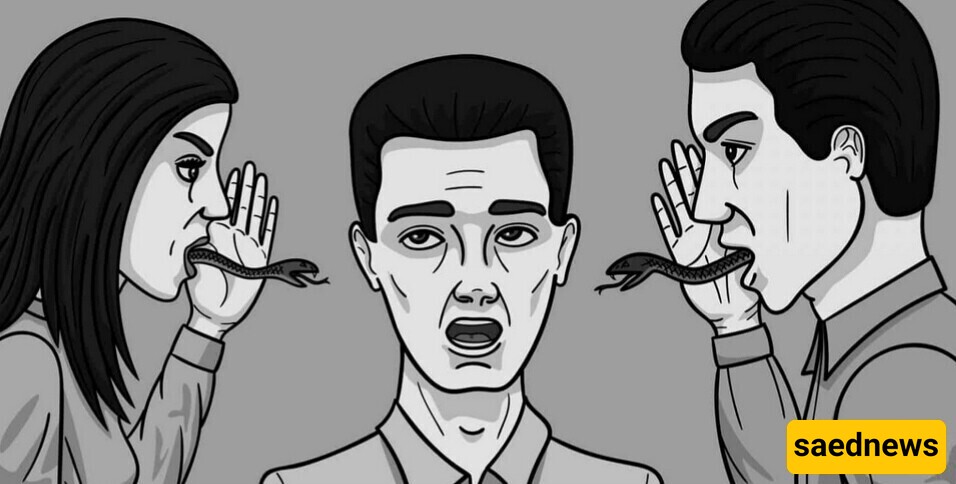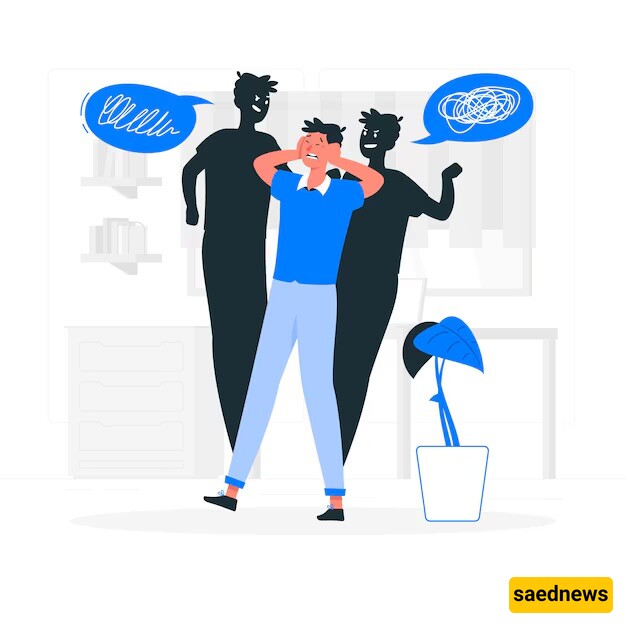SAEDNEWS: Toxic relationships can make life feel like a constant struggle. Difficult personalities can leave us drained, anxious, and stressed. While we can’t always avoid them, limiting interactions is key to protecting your inner peace.

According to SAEDNEWS: toxic relationships can make life feel like a constant battle. We all encounter difficult personalities that leave us feeling drained, anxious, and depressed. While we can't completely avoid them, it's crucial to limit interactions with toxic individuals to maintain inner peace.
Toxic relationships impact more than just our emotional state; they can erode our self-esteem, health, and overall well-being. Studies show that dealing with difficult people increases cortisol, the stress hormone (signs of high cortisol). This leads to heightened anxiety, high blood pressure, fatigue, and a weakened immune system. Setting boundaries with toxic people prevents damage and protects our mental health. While it might seem impossible to completely remove toxic personalities from our lives, limiting contact with them allows us to nurture positive relationships, enhancing our happiness and life satisfaction.
Psychological Manipulators Manipulators often play mind games and verbally push others to get what they want. Their tactics include guilt-tripping, spreading rumors, and playing the victim. For example, they might not talk to you for days until you apologize, even if you did nothing wrong. These behaviors often stem from an excessive need for control.
To distance yourself from manipulators, limit sharing personal information and refuse to engage in guilt tactics. If they try to spread rumors about you, confront them calmly but firmly. Your non-defensive response will reveal their true nature to others. Over time, limit contact and redirect your energy towards healthy relationships.
Chronic Complainers Chronic complainers only see the negative in every situation. They make broad judgments about people and issues without taking action to solve problems. Conversations with them inevitably lead to criticism, gossip, and whining about life's unavoidable frustrations.
Avoid wasting energy offering solutions to chronic complainers – they often don't listen. Limit complaint sessions or refrain from participating. Steer the conversation towards positive topics or ideas for improvement. The less validation they receive from you, the less likely they are to keep bringing up minor issues.
Drama Seekers Drama seekers constantly stir up issues because they quickly get bored. They might exaggerate stories to create chaos, gossip, or drag you into unnecessary conflicts. These people thrive on attention and excitement, even if it's negative.
The best way to handle drama seekers is to stay calm and avoid engaging in their theatrics. Don't get sucked into questioning details or showing too much sympathy for their exaggerations. Instead, steer the conversation towards positive topics and discuss constructive ideas for change. Without a stage to perform on, they'll eventually lose interest in your friendship.
Self-Righteous Individuals These people feel they are always right in any disagreement. They stubbornly argue over trivial matters and never know when to drop the subject. You can spend hours debating with them to no avail.
Avoid getting caught in endless debates with self-righteous individuals. If you reach a stalemate, gracefully exit the argument by saying, "Let's agree to disagree." If the issue is trivial, change the subject to prevent pointless discussions. Over time, if you maintain your boundaries, their arguments will diminish.
Jealous People Jealous individuals are upset by your successes, happiness, relationships, possessions, or anything that improves your life. They make snide remarks to undermine your achievements and boost their self-esteem. Deep down, jealous people feel insecure about their own lack.
Be cautious about sharing personal information around jealous people. Be kind but don't seek their approval. Focus your time and energy on supportive friends who genuinely celebrate your happiness. If their jealousy turns destructive, limit contact with them.
Users Users only connect with you when they need something. They take advantage of your kindness, borrow money, and monopolize your time. But when you need support, they're always too busy to help.
Protect yourself from users by recognizing their patterns and setting firm boundaries. Learn to say no and prioritize your own needs and relationships with those who reciprocate your kindness.
Abusers Abusers use verbal threats, outbursts of anger, and physical violence to dominate, control, and emotionally harm others. They seek power and control. It's essential to escape any relationship involving abuse entirely and safely.


